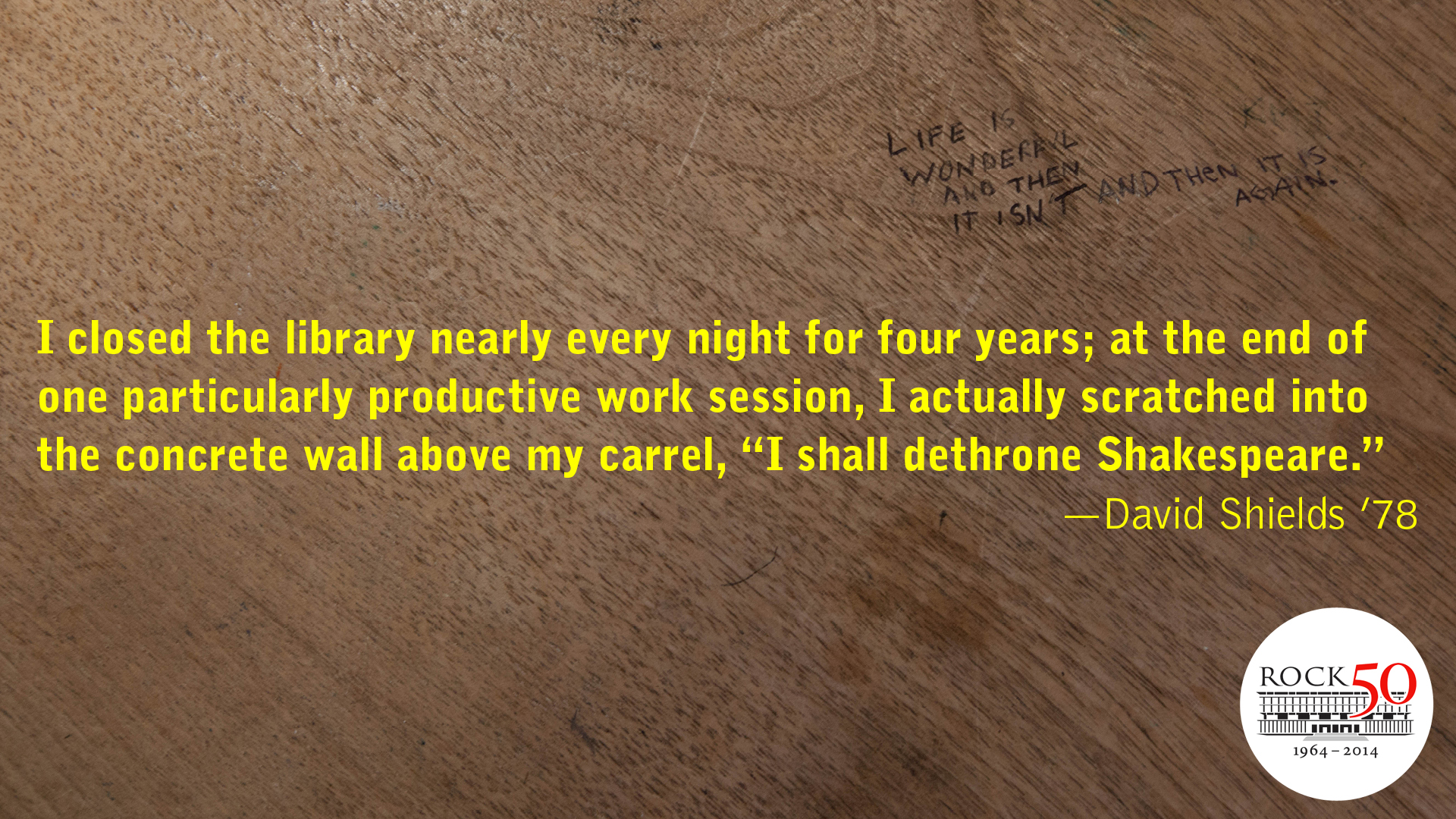Stacks and stacks to wander, the glory of open stacks: an expansiveness within narrow aisles and vertical towers. What could be more fertile for a writer? This vision is all the more evocative for me thirty years after the fact, when the shelf life of physical books on shelves seems so clearly destined for expiration.
To have the Rock side by side with the John Hay, the latter with its closed-format specialty collections, was to have the best of both worlds if you were a graduate student. I spent many rewarding hours in both, and enjoyed them much more than the graveyard-shift hours I logged in at the computer mainframe at the base of the Science Library, learning to format my MFA thesis via computer the way Robert Coover, czar of hypertext, wanted us to.
On the Rock’s upper floors, there were wonderful nooks and crannies in which to secret oneself when standing or crouching in the stacks themselves became fatiguing. One could sit unmolested with one’s loot and keep browsing or take notes, as if in a grotto: an entirely different environment than the rooms designed to accommodate larger concentrations of readers at the base of the Rock. Those stacks served me well, whether I was researching term papers on Buddhism or Marxism, or finding out everything I could about ancient Chinese culture when the uncannily intuitive John Hawkes assigned me the exercise of composing one hundred Chinese fairy tales.
Though I also discovered and borrowed works of fiction from the Rock, my home genre tended to bring out the capitalist in me, so the marvelous Brown Bookstore and College Hill were my principal sources for works of imagination. And yet, one could not, despite several comfy chairs, burrow in quite as deeply at a place of commerce as at the Rock. There was something that felt deliciously clandestine about scanning the stacks and perusing the loot, none of which would ever be your property and yet all of which, implicitly, was yours for the taking, courtesy of your Ivy League I.D. card.
The capacious stacks seemed even more ample and reassuring when I was a nascent instructor. I felt unbearably ignorant when I had the privilege to teach the inaugural first-come-first served beginning fiction workshop for Brown undergraduates, and between each class I would race to the Rock to avail myself of every possible critical perspective on whatever short story I happened to be offering them as a model, gorging on scholars of Flannery O’Conner on Monday and scholars of Joyce on Wednesday and so on. And because thankfully I studied among mentors who didn’t subscribe to the write-what-you-know tenets of creative writing, I kept seeking the Rock to inspire my own fiction, for instance when I wanted to turn a girl into a phoenix, and discovered the opulently illustrated New Dictionary of Birds, the elegant writing of which I envied, and which was supplemented by more arid articles from Scientific American in the periodical section–back when periodicals were obtained the old-fashioned way.
But perhaps the most lasting memory transcends those wondrous books and the extraordinary people who connected me to them. Having gone to a small rural college, I wasn’t used to having to show my credentials to gain admittance to a library, but it was a treat to do so for that man with the beautiful smile. I wish I could recall his name, if I ever knew it. His smile made you feel welcome, made you love books even more intensely than you did the moment before you pulled out your Brown I.D., made you feel infectiously glad to be alive. When somewhere deep into my years at Brown, I actually had a more extensive conversation with him, I learned he had some severely painful physical malady, possibly some spinal deformity, and I felt awe at his ability to transmit such radiance despite profound discomfort, and this memory of him reminds me anew of all I take for granted, well beyond the physicality of books.
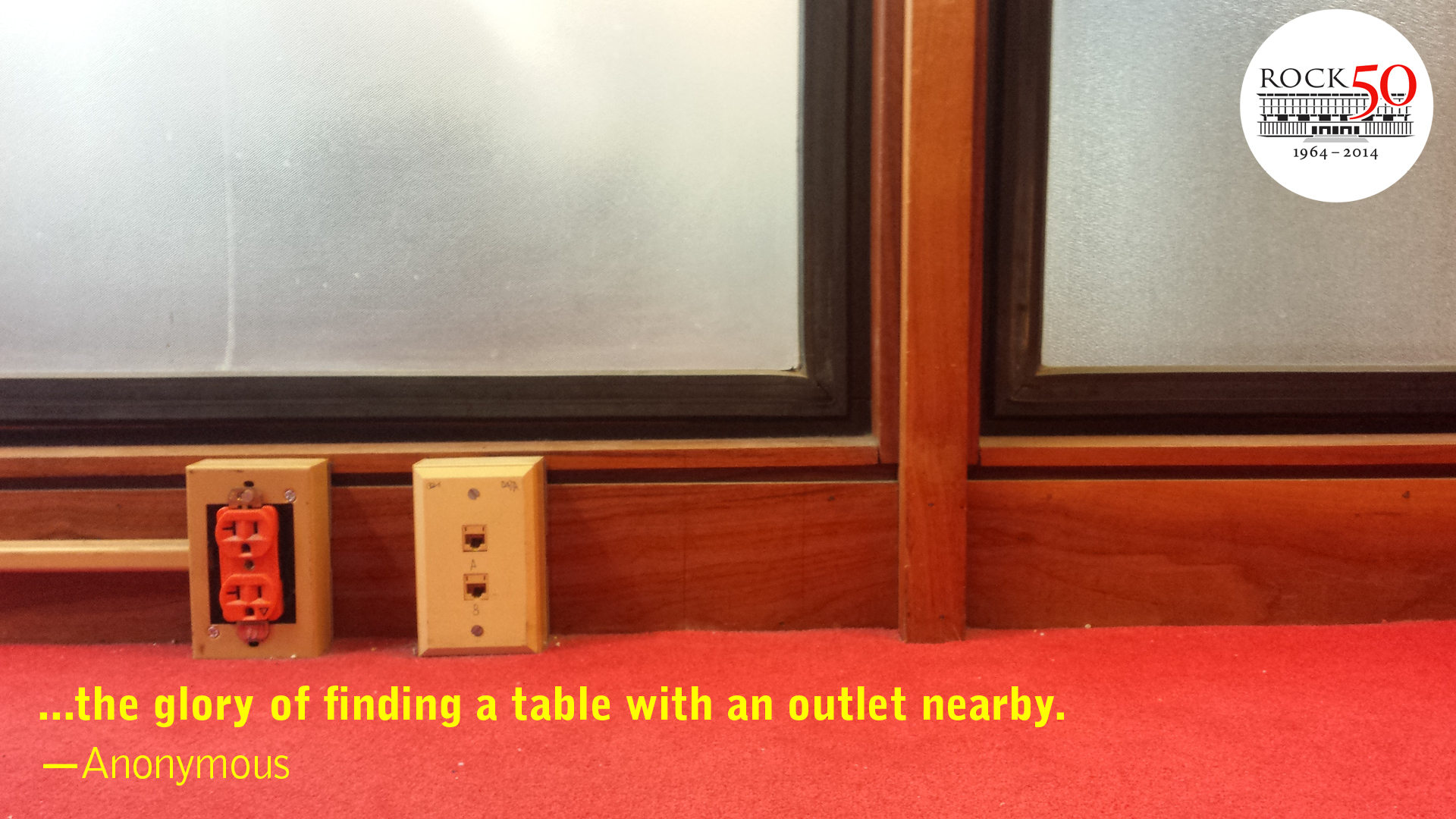


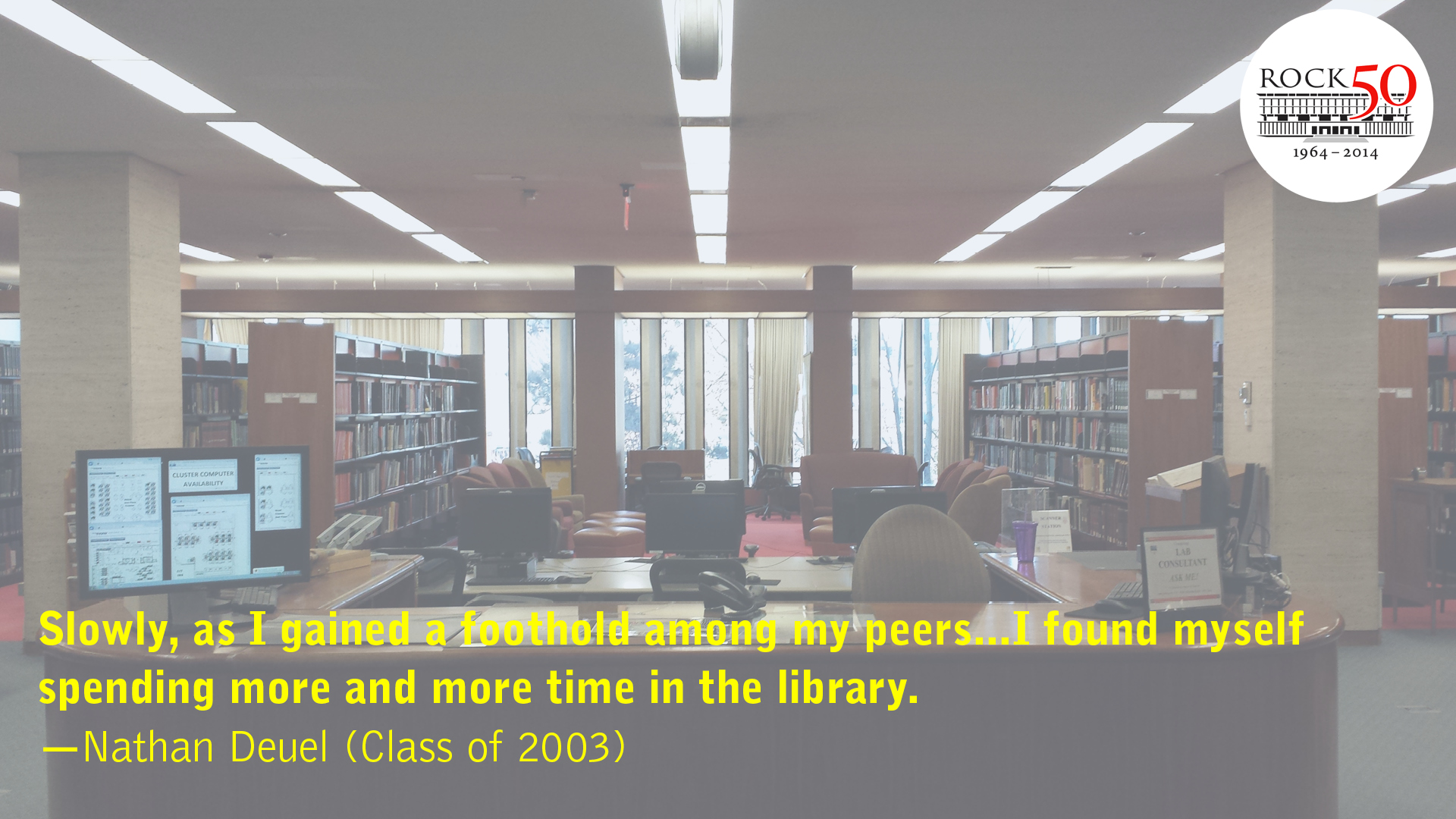
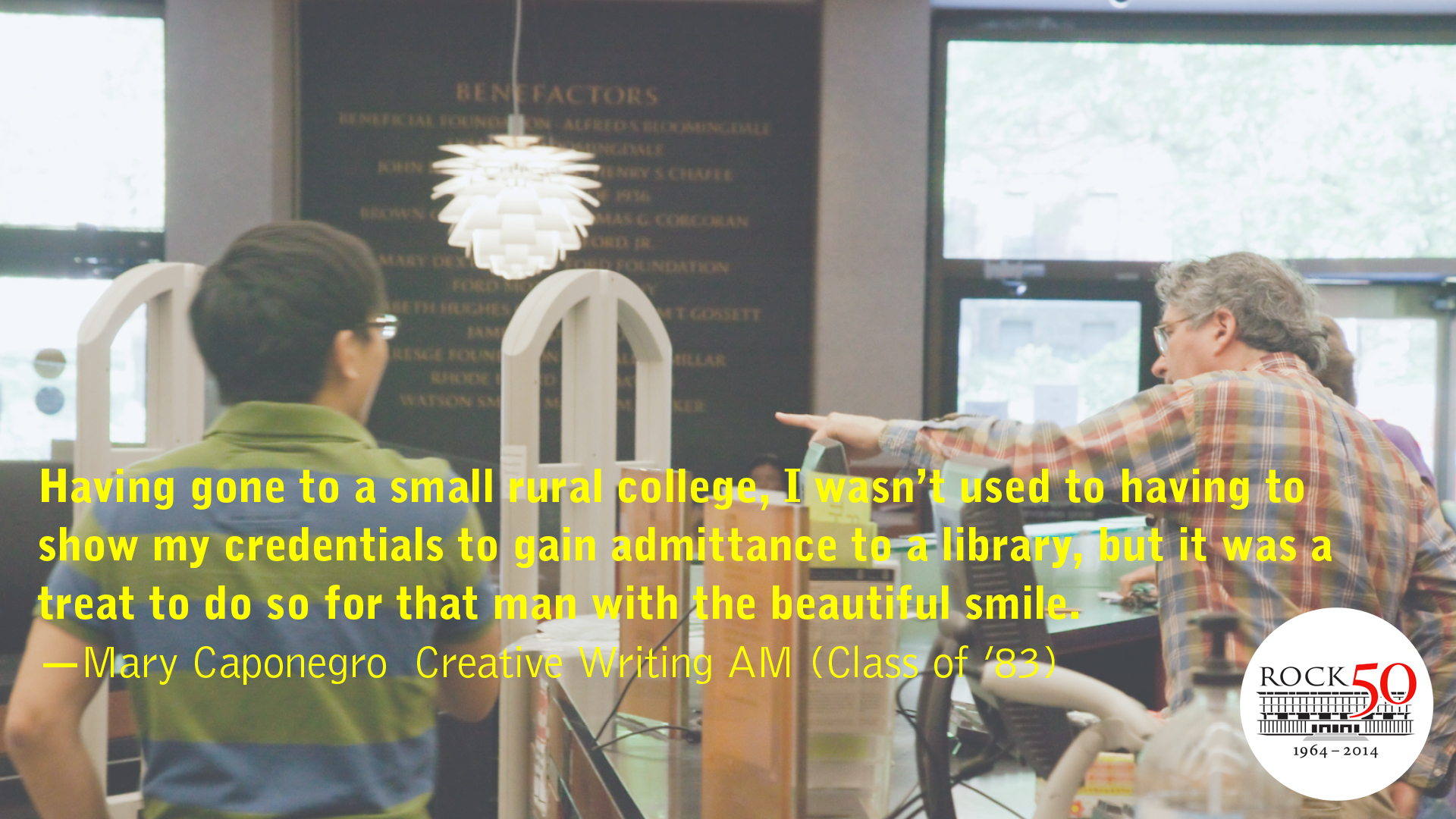

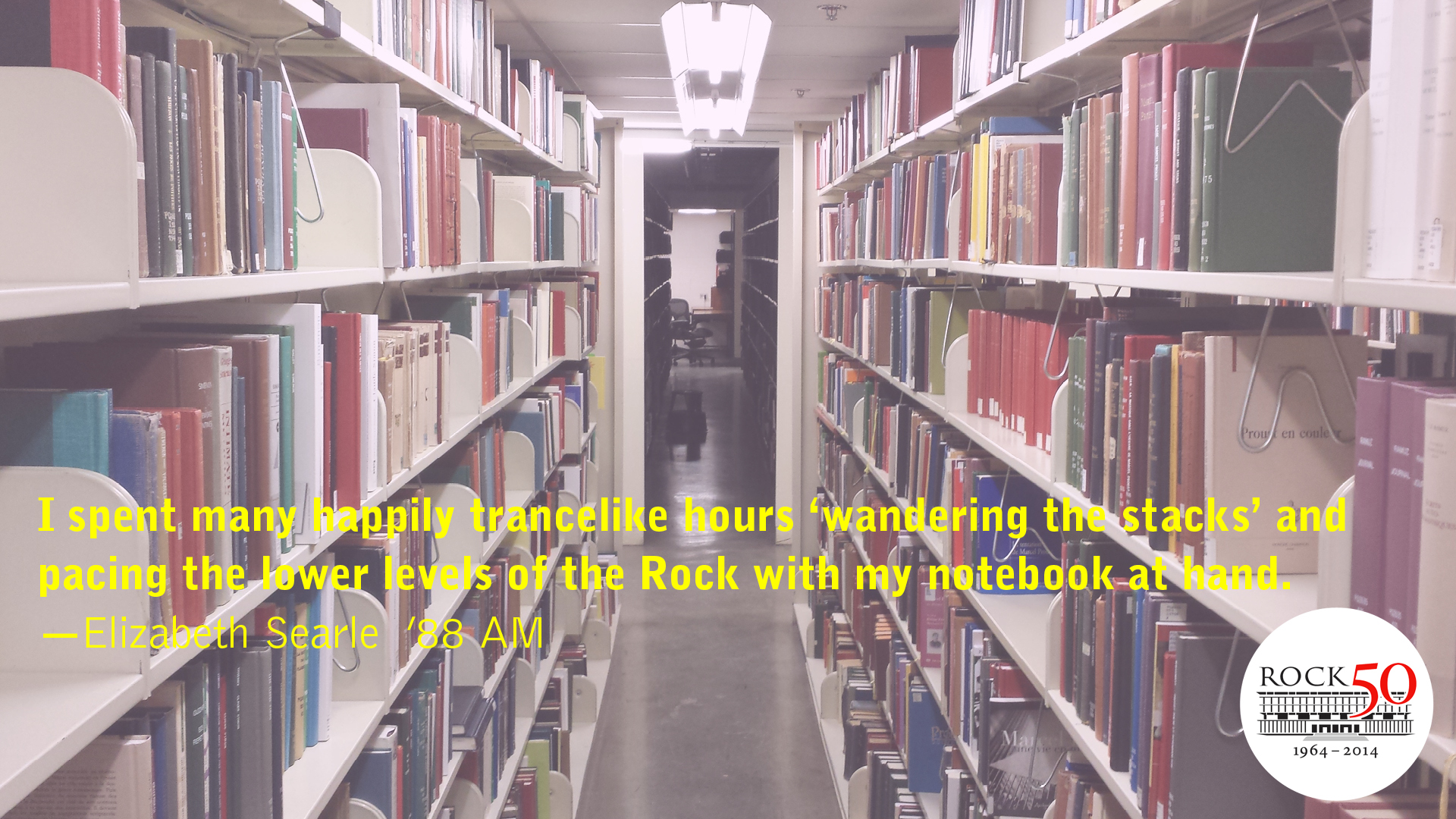
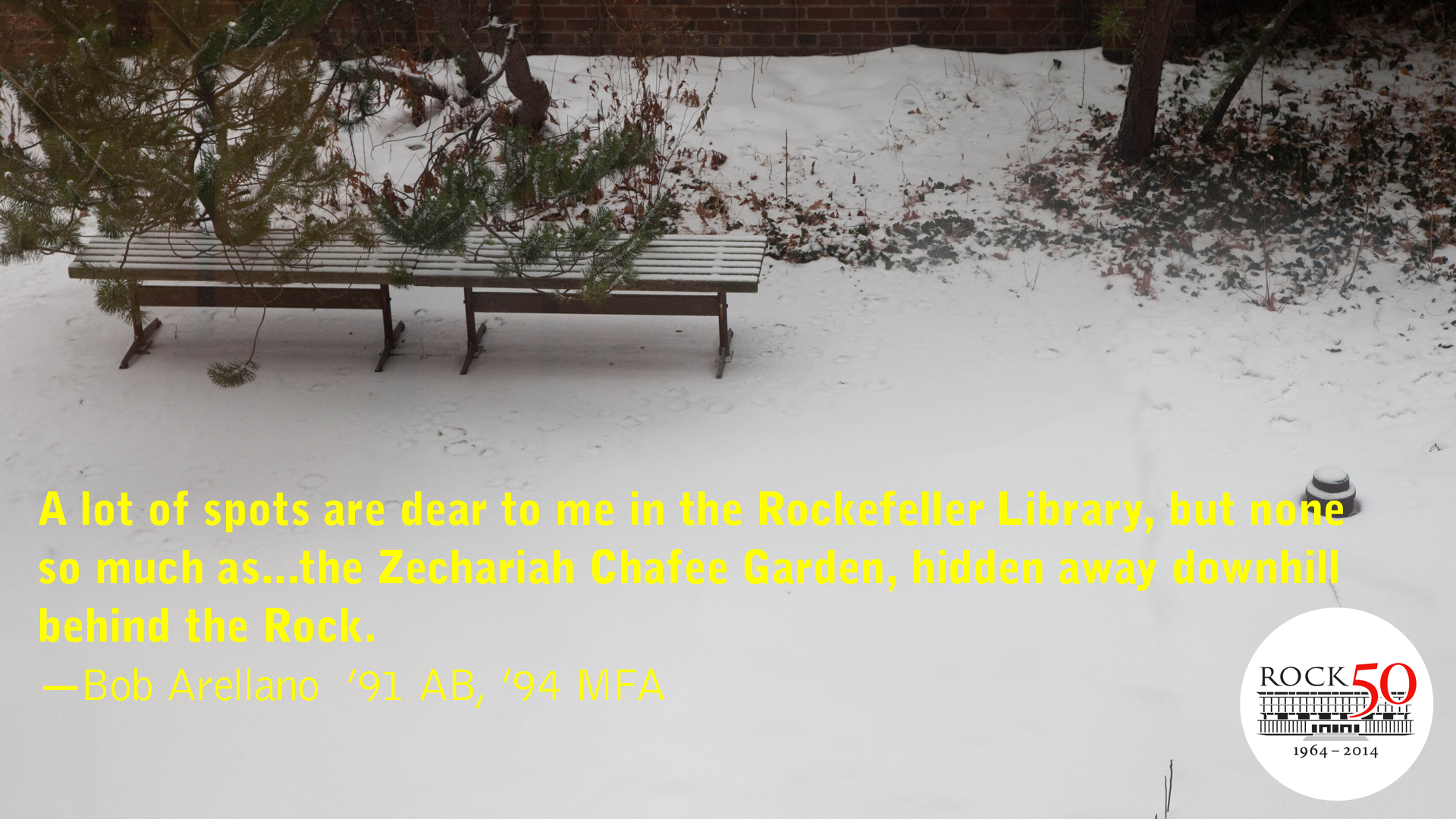
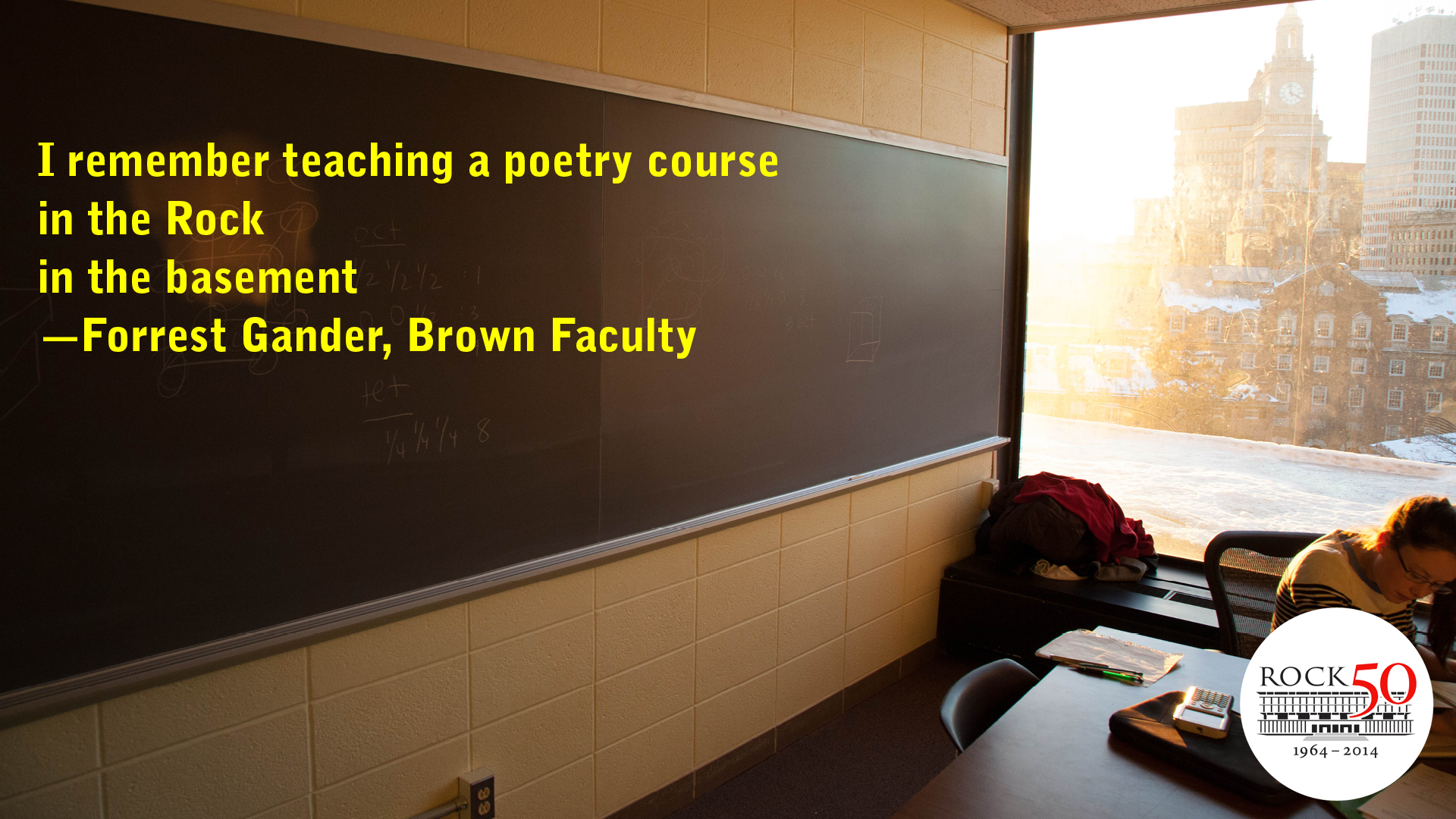 Forrest Gander is a professor in Literary Arts at Brown. He shared the following Rock memory:
Forrest Gander is a professor in Literary Arts at Brown. He shared the following Rock memory: